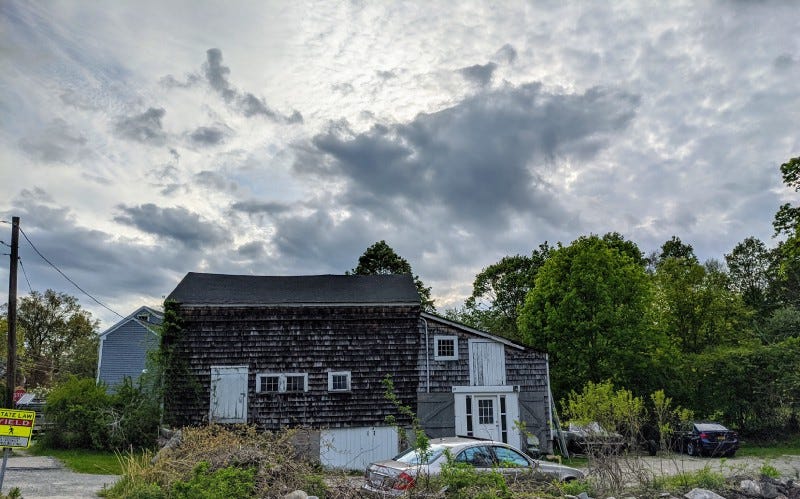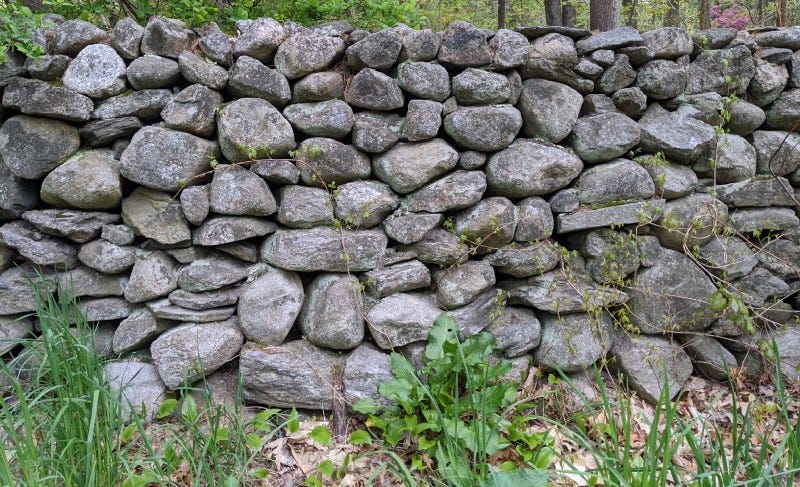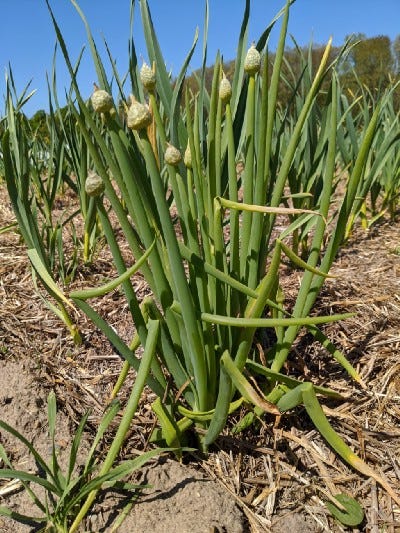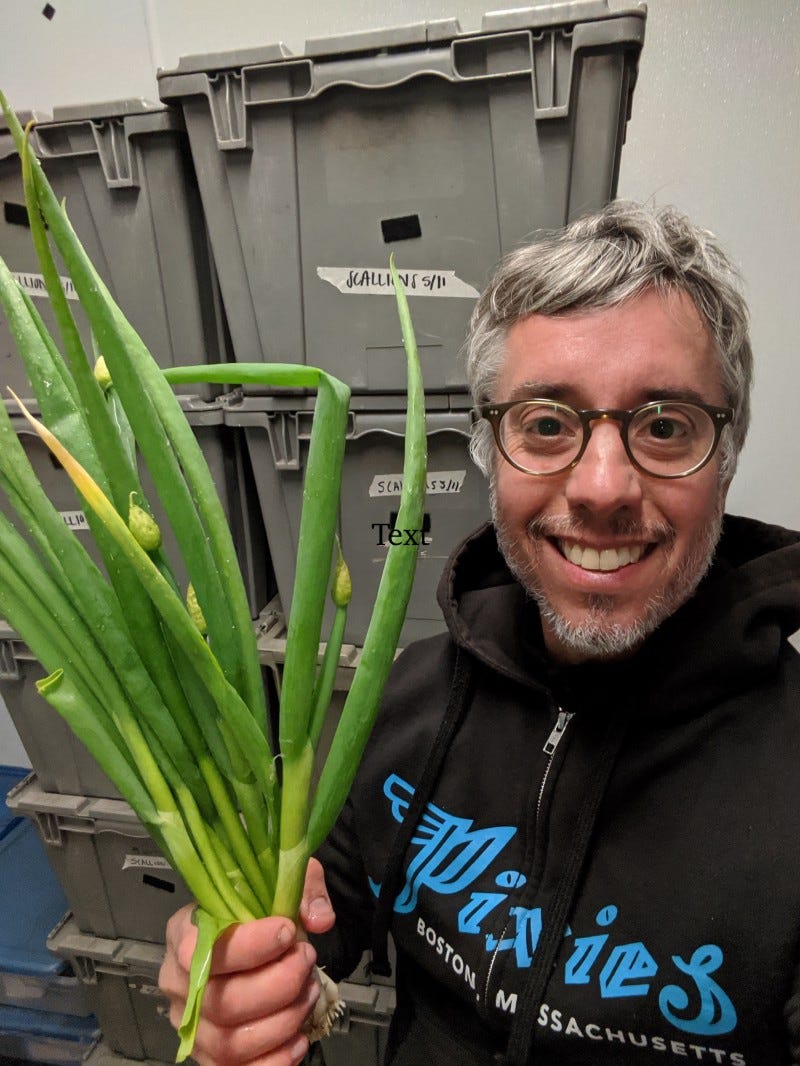5/20/2020 — Carlisle, Massachusetts
Last week sometime. Timing doesn’t matter much these days. I had worked on my laptop since early. By late morning I needed a view different from a monitor, which you’re gazing at now, which boundary our lives.
Farmer Andrew pulled up in a vintage Dodge van they call Uncle Rico. (My car goes by Sapphire Dragon. Just sayin’.)
Rico’s loud V8 idled by the flung-open plank barn doors of my studio.
Climbed in, felt the momentum of the chassis under speed, talked and enjoyed scenery of fields and marshes and forest that gave way to gray slabs of strip mall that always make me feel a little dead inside.
Soon we returned to Clark Farm, a short walk from Carlisle’s corner store except there can be no corners in a one-shop town. There are sidewalks here and narrow roads. The library, town hall, post office, country store and Unitarian church are a few minutes walk from each other. People talk to neighbors while gardening. They wave from porches or front yards, they know you by your vehicle or your gait. My life from The Village to a village has hell yes-19th century, hell no-Robert Moses parallels that make me happy. I hope Jane Jacobs smiles down from shmayim — Hebrew for heaven.
We jumped out of Rico. A dozen acres glided out and away from us in a palette of greens and ochres like a Hudson River painting. Waist-high rock walls border the north and western fields, each heavy piece puzzled together by hand centuries ago, excavated from fields and quarries and stream beds, hauled by horse-drawn carts and wheel barrows and backs. The stone walls still mark boundaries between field and neighbor.
The barn and house date from the mid 1700’s, a few decades before the Revolution. I like to think the builders and tenants felt the way we feel now.
“This is the life,” they’d tell each other. “We’re deep in the country but only twenty miles from Boston. Both near and far.” It’s what everyone has said and now says and will say about Carlisle, as long as we stave off those slabs of strip mall.
The Clark family ran a dairy operation here from 1899 to 1985. Imagine a big red barn with a silo full of feed for livestock, and then across from the barn, a gravel path reaching a farm house. They rest on a rise overlooking fields. Colonists made this land well. You can see your livestock while sitting from home or doing barn chores. All you have to do is look.
The Clarks made it work until stalls for milk cows and front yards for children went quiet.
Skip ahead. In the early 2000s an older couple interested in agriculture bought the land and hired my friend. Together they transformed weeds and pasture into an organic CSA —Community Supported Agriculture.
Hora’s and pastures.
Let’s back up a bit. In 1986 I celebrated my Bar Mitzvah in Waltham, MA, surrounded by hora-dancing family and junior high school friends, including Andrew. That same year a farmer and neighbors a hundred miles to the west of us reinvented how the world grows food. They started America’s first CSA at a farm in the Berkshires and then in New Hampshire. (A few Japanese communities and a man in Alabama had similar ideas in the 1960s.)
The CSA is a simple counter to global supply chains and a capitalism that is actually feudalism — where a fistful of billionaires own the websites, media outlets and now, even the grocery stores. The oligarchs deliver us flavorless produce grown in pesticides and fertilizers that pollute water, kill bees and injure field workers. Or if it’s organic, the crops are grown from seed stock designed for shipping, not flavor; then they require fossil fuel to wend their way from California to New Jersey, Maine to Beijing.
How do you fight people with Pharaonic wealth and a moral code plagiarized from Guns N’ Roses first album?
You just need timing. Start in March.
Give your closest farm one or two thousand dollars. If enough of your neighbors do the same, the farmer can afford potting soil and seeds, payroll for field hands, they can maintain and expand structures, gas up the tractors and go. Very slowly. In a straight line.
Soon those investments will yield returns that keep you well fed with produce, meat, milk and eggs, week after week, month after month, until late afternoons decline to darkness and cold and nothing much grows.
Then you start again next March.
Don’t worry, greenhouses and root vegetables and freezers full of meat will fuel your winter.
If enough people buy into their closest farm, if all people do this, the billionaires will fly to Mars and we’ll have the Earth to ourselves.
At least that’s how I look at it.
Let’s be honest. Jeff Bezos makes Darth Vader look like a sensitive guy in Covid-compliant headgear and serious PPE.
Andrew mentioned scallions when we exited the van. He went to the house for an errand. I jogged down the hill to the fields.
Two Peruvian men worked a bed of freshly dug scallions. They separated and peeled and placed each shoot into a plastic bin destined for a truck and then the wash up room and walk-in cooler. The vegetables would soon be bundled into cardboard boxes for CSA members to collect on their weekly haul. The scallions would go to kitchens, dinner plates and soon, turn into septage that becomes fertilizer. The cycle of life cranks its slow, heavy wheel.
I joined the men by dropping to my knees in the silent reflex of ritual. Farm diction fits the noun. It’s “soil” instead of dirt, “bed” instead of row, “ harvest” instead of lean over and reach and pull and cut and slice and yank until you have a vegetable in hand and then start again, down the line, over and over and over until your body hurts so bad you think it’ll never toughen but it does.
We separated scallion clusters flocculated with soil. The men pulled apart shoots then worked scissors to snip roots from bulb because this is their job and they’re prepared. I took out my pocket knife. I gripped roots with two fingers and palmed the shoot. My other other hand held the knife as I sawed between roots and bulb. No cutting board for ballast. It took me a few jerks of the blade to separate the roots from the bulb. This worked reasonably well. Then I looked over and saw that one of the men, Franny, had finished five scallions by the time I did one.
It was heading towards noon when the town church would chime its bells for the hour. The guys needed lunch. They’ve been at it since seven in the morning, when I was waking and heading to a laptop for work but not labor. There were piles of scallions to get through. You can’t leave them in the heat. Andrew joined. He knelt into the soil. He took out a pocket knife with a blade curved like a tiny scimitar. He glanced at my work.
“Hold the the scallion with your left hand, then pull the blade into your thumb,” he instructed.
With his left hand he held a scallion upside down, thumb against the bulb and roots, fingers around the stalk — a thumbs-up sign. With his other hand he pulled the knife towards his thumb. He dropped the decapitated scallion in a bin and moved on.

I tried it. I could see my blade slice into my thumb and blood flow onto the field and my hand hurt for weeks. It all looked very sharp and tender. I pulled the blade gingerly towards my thumb, I tried a few different angles, I abandoned my efforts.
Andrew grinned. “You’ll develop a callus on your thumb. It’s alright, you’ll figure it out.”
“Bullshit. Your thumb’s not callused.”
He showed me his hand. Under the dirt was skin but no rough patch. He shrugged. By my twentieth scallion I could sort of do the gesture. If Franny was boastful he would have laughed at how few I managed against his plenty. But Franny is non judgmental. It doesn’t hurt that I bring the men beer on weekends.
Eventually we piled the bins high. We packed the truck and went to separate lunches: mine in my barn, the Peruvians to their apartments and Andrew to his house. There are no crew meals in the time of Covid-19.
Later, behind barn doors shut against the night, I lay in the darkness on the lumpy terrain of my Airbnb bed. My friend doesn’t have callused thumbs, he has repetition plus a lack of fear which equals talent.
Sounds about right in an era of futures but no foresight, an era hungry for something to make this world right again, even though we know there is no again, only a newness we can’t comprehend but must be ready for with whatever you want to call it, callus or courage.












